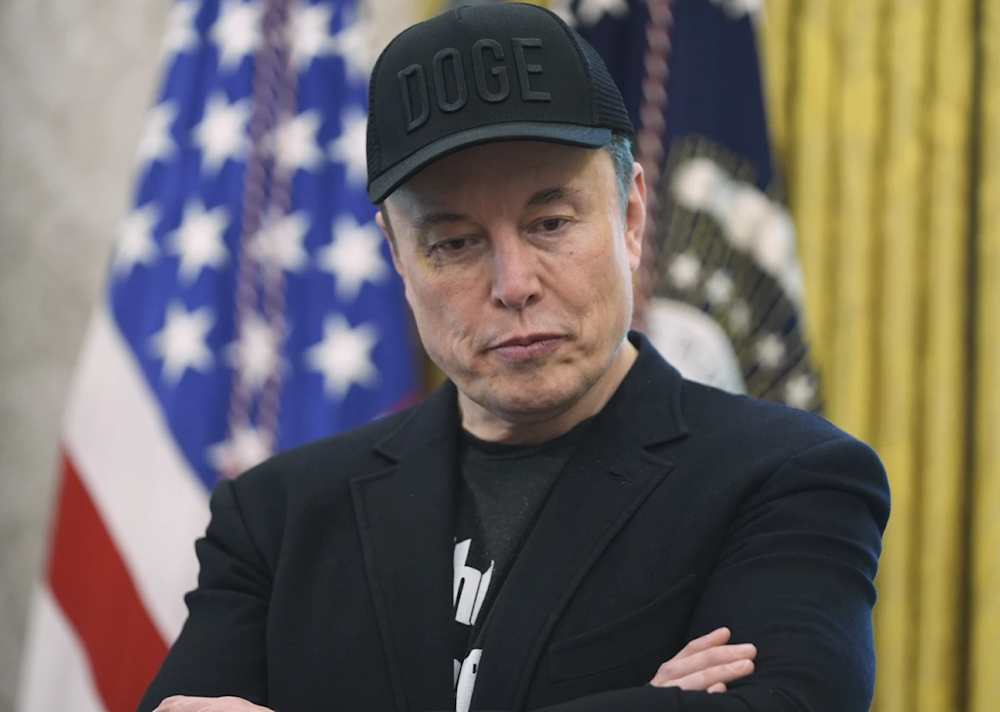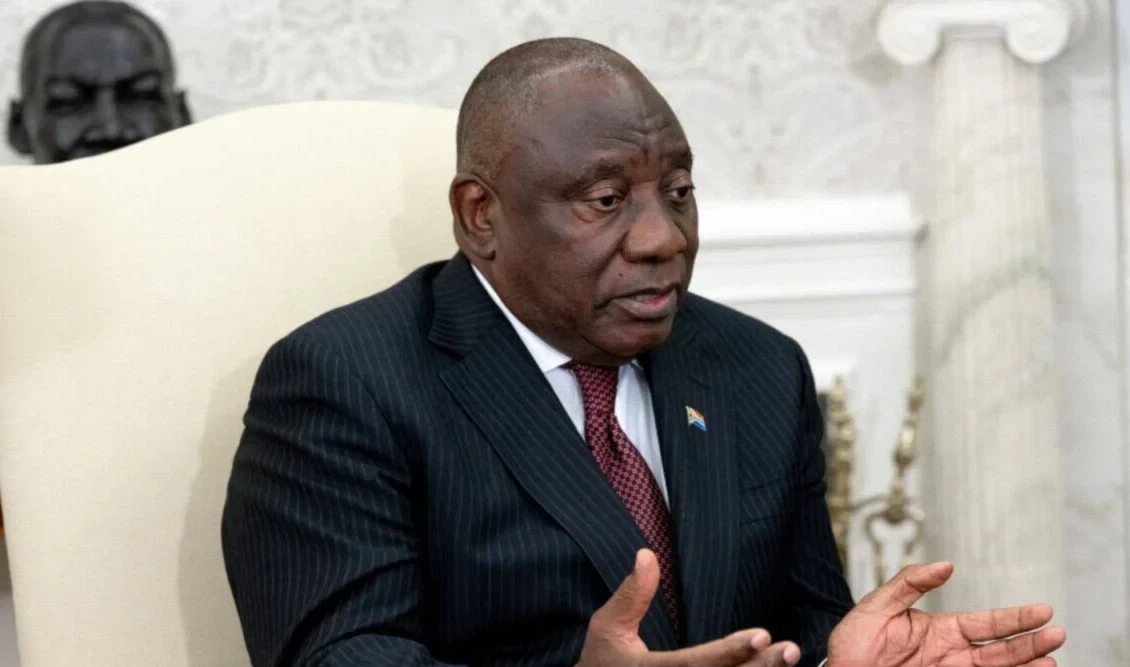South Africa slammed over Starlink law amid Musk deal accusations
South Africa's government faces backlash over a proposed exemption to Black ownership laws seen as a concession to Elon Musk’s Starlink.
-

Elon Musk attends a news conference with President Donald Trump in the Oval Office of the White House on May 30, 2025, in Washington (AP)
South Africa’s government is under fire after proposing a change to Black ownership rules that could allow Elon Musk’s Starlink to enter the local market without complying with the country’s Black Economic Empowerment (BEE) laws, the Financial Times reported.
Opposition parties, including Build One South Africa (BOSA), accused the government of striking a “backdoor deal” with Musk. BOSA deputy leader Nobuntu Hlazo-Webster criticized the move, saying it sends a message that powerful foreign billionaires can bypass laws that local companies must follow.
BOSA spokesperson Roger Solomons called the proposed exemption for telecom companies “reckless", arguing it favors Starlink over national interests.
Solomons stated that the recently gazetted carve-out for telecoms corporations was an "impulsive move" that allowed Starlink to enter the South African market "under conditions favourable to them, not the country."
Julius Malema, leader of the Economic Freedom Fighters (EFF), vowed to oppose Starlink in Parliament, warning against letting corporate interests dictate national policy.
Musk refuses to comply with BEE rules
Communications Minister Solly Malatsi recently introduced a bill that could exempt telecom companies from the requirement to sell 30% of their local operations to historically disadvantaged groups. Instead, companies could fulfill alternative equity obligations, such as hiring local suppliers, creating jobs, or supporting small businesses.
The change is widely seen as paving the way for Starlink, after Musk publicly stated he would not comply with South Africa’s BEE rules and criticized the licensing system for excluding him because he is not Black.
Other companies, like Vodacom (a Vodafone subsidiary), have previously complied by selling shares to Black investors.
Critics warn of broader impact on investment and equality
While the African National Congress (ANC) has long championed affirmative action as a cornerstone of post-apartheid policy, critics argue that BEE rules often benefit only a small Black elite while discouraging investment.
The proposed relaxation of Black ownership rules in telecoms has also triggered calls for similar changes in the mining sector. The Minerals Council of South Africa has urged the government to exclude exploration companies from proposed requirements mandating 30% Black ownership.
Council spokesperson Allan Seccombe argued that exploration is hazardous and capital-intensive, saying all funds should go toward drilling and discovering viable resources.
Meanwhile, the Democratic Alliance (DA), South Africa’s second-largest party, is suing the ANC over BEE-related mining laws, calling them unconstitutional. DA MP James Lorimer warned on Friday that the proposed ownership rules could kill off foreign investment in South Africa’s already struggling mining sector.
President Cyril Ramaphosa has repeatedly rejected calls to reform or eliminate BEE policies. Speaking in Parliament this week, he expressed he finds it "very worrying that we continue to have this notion that BEE is the one that’s holding our economy back,” adding that “it is the partial and exclusive ownership of the means of production in our country that is holding this economy from growing.”
The ANC recently formed a coalition government with ten other parties after suffering its worst electoral performance in 2024, losing its majority for the first time since the advent of democracy, amid growing public frustration over crime, unemployment, and the cost-of-living crisis.

 3 Min Read
3 Min Read










